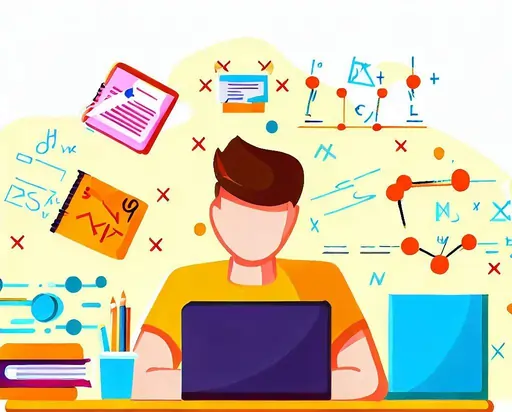Conquering Mathematics Exams: A Comprehensive Guide to Effective Study Techniques

Leverage Past Exam Papers
It's common for mathematics professors to share previous years' exam papers. This is an opportunity you should seize immediately. Past exams provide a blueprint for what you might expect in the upcoming test. They offer a window into the kinds of problems you're likely to face and the techniques you'll need to solve them. Analyzing these papers can illuminate the most frequently tested areas and give you a sense of how problems are often framed.

Dive Into Problem-Solving
Mathematics is all about problem-solving, and simply reading theorems or equations will get you nowhere. Actively work through as many problems as you can, both from sample papers and your textbook. Time yourself while solving these to simulate exam conditions. Go a step further by creating variations of the problems to cover all your bases. This equips you to deal with unexpected twists during the actual exam.
Pinpoint Core Problems
Every chapter in a math textbook usually has a handful of questions that encapsulate the key principles of the topic. Identify these pivotal problems and list them on a separate study sheet. Solve these questions and summarize your problem-solving process in your own words. Sharing your solutions with classmates can offer new perspectives and validate your understanding of key techniques.
Uncover Your Error Patterns
Mathematics allows for precise error analysis. As you go through your homework, quizzes, and returned exams, look for recurring mistakes. Are your errors generally conceptual or computational? Recognizing these patterns will guide your preparation by highlighting areas that need more focus.
Seek Immediate Help if Stuck
If you find yourself continuously struggling with certain topics or types of problems, don't procrastinate in seeking help. Consult your professor during office hours or look into tutoring services that your institution's Center for Academic Services may offer. Delaying this step can lead to a domino effect of confusion and poor performance.
Harness the Power of Study Groups
While math may seem like a solitary pursuit, there's much to be gained from collaborative study. Study groups can provide varying methods of approaching a problem, and explaining your process to others can reinforce your understanding. Choose your study partners carefully, though—a focused group is far more beneficial than a distracted collective.
Supplement Your Study Material
Your main textbook and class notes are essential, but additional study aids can provide deeper insights. Consult your instructor for supplementary resources like specialized math books, websites, or apps. These aids often present information in different formats—such as interactive exercises or videos—which can greatly aid in conceptual understanding.
Post-Exam Analysis: An Essential Step
Getting your exam paper back isn't the end of the road; it's a milestone on your learning journey. Take time to rework incorrect answers. Dive into the 'why' behind each mistake. This exercise is invaluable for sharpening your skills and preparing for future exams.
Conclusion
The journey to acing mathematics exams isn't a sprint; it's a marathon that requires diligence, strategy, and a deep understanding of the subject. By leveraging past exam papers, diving deeply into problem-solving, and utilizing additional resources, you're not just preparing for an upcoming exam—you're laying the foundation for academic success in all future math-related endeavors.
The next time you find yourself staring down a complex equation or a challenging word problem, remember these proven strategies. You're not merely studying to pass an exam; you're gaining skills that will serve you in future courses and possibly in a future career in mathematics or related fields.